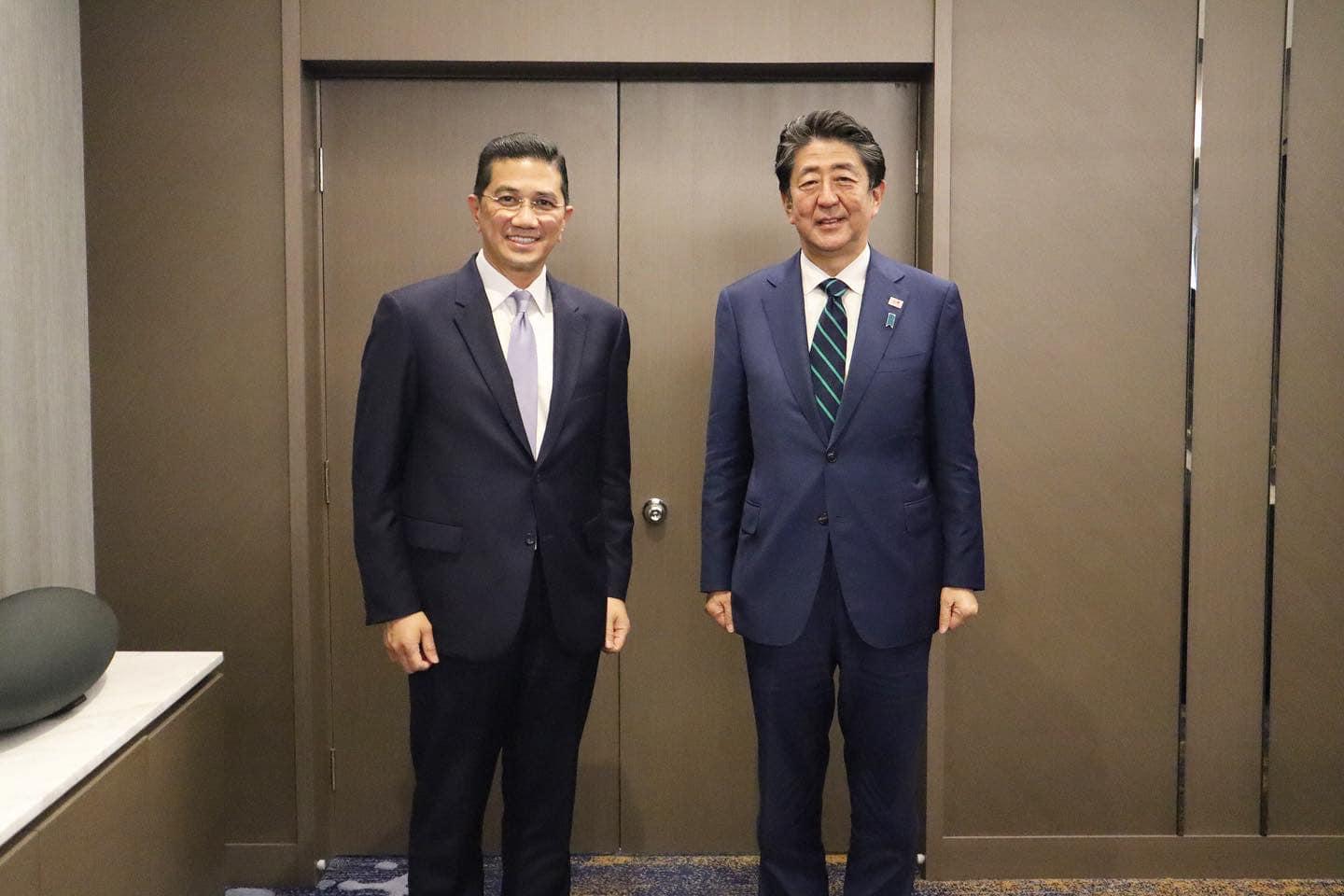Malaysia, Japan to step up joint efforts to tackle global supply chain issues
Other issues of mutual interest include the enhancement of bilateral trade and investment relations, the Regional Comprehensive Economic Partnership, and the Comprehensive and Progressive Agreement for Trans-Pacific Partnership.
Just In
Malaysia and Japan have reaffirmed their commitment to redoubling their efforts to meet the challenges of the new era, particularly issues related to global supply chain disruptions.
International Trade and Industry Minister Mohamed Azmin Ali, during a courtesy call yesterday on former Japan prime minister and special envoy of Japan’s prime minister to Malaysia Shinzo Abe, took the opportunity to deliberate on various issues of mutual interest.
These included the enhancement of bilateral trade and investment relations, the 40th anniversary of the Look East Policy, the Regional Comprehensive Economic Partnership (RCEP), Comprehensive and Progressive Agreement for Trans-Pacific Partnership (CPTPP) and Japan’s hosting of the Expo 2025 Osaka, the international trade and industry ministry (Miti) said in a statement.
“They acknowledged that in recent years, both countries have been expanding the horizon of cooperation including in measures against Covid-19, smart cities development, communication infrastructure as well as energy transition to achieve net zero carbon.
“Both sides concurred on the imperative of working together to tackle the challenges of the new era, particularly in facing headlong issues related to the disruption of the global supply chain,” the ministry said.
On the RCEP, Abe said he was looking forward to the agreement coming into force for Malaysia on March 18, expressing the hope that Malaysia would also soon ratify the CPTPP.
Miti said Azmin also took the opportunity to update Abe about Malaysia’s completion of a cost-benefit analysis for CPTPP and how it was currently undertaking domestic processes, including the necessary legislative amendments.
Commending Malaysia’s Look East Policy, which has entered its 40th year, Abe underscored its effectiveness in providing Malaysia with a strong foundation in promoting trade and investment cooperation, human resource development as well as people-to-people ties with Japan.
Last year, Japan was ranked as Malaysia’s fourth largest overall global trading partner and second largest after China for the East Asia region, while Malaysia was Japan’s 10th largest trading partner.
Total trade between both countries came to RM148.98 billion, with Malaysia’s exports to Japan amounting to RM75.27 billion and imports from Japan valued at RM73.71 billion.
As of 2021, a total of 2,709 manufacturing projects with Japan’s participation were realised with total investments of RM90.9 billion, generating 337,280 jobs.
The majority of these investments were in electronics and electrical products, chemicals and chemical products, non-metallic mineral products and transport equipment.
Subscribe to our newsletter
To be updated with all the latest news and analyses daily.
